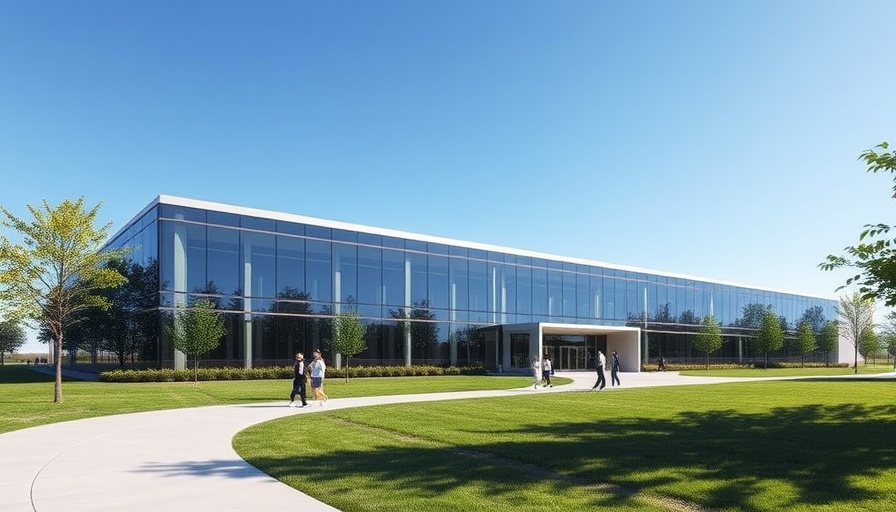
Revolutionizing Education and Industry: The ECS Innovation Hub
California State University, Fullerton (CSUF) is positioning itself at the forefront of engineering and computer science education with the construction of the $54-million Engineering & Computer Science (ECS) Innovation Hub. Expected to open its doors in 2027, this state-of-the-art facility highlights the importance of modern laboratories in shaping the future workforce.
Why the ECS Innovation Hub Matters
The ECS Innovation Hub is designed to accommodate various disciplines within engineering, including computing, robotics, materials testing, and cybersecurity. This adaptive space aims to serve as a launchpad for talent, paving the way for future leaders in technology. By incorporating flexible and immersive learning spaces, CSUF will provide an environment that encourages creativity and collaboration among students.
Support Spaces: Creating a Holistic Learning Environment
In addition to specialized labs, the building will include supportive spaces such as student lounges, study areas, wellness facilities, and makerspaces. These areas are tailored to foster not only academic growth but also mental health and social interaction. This holistic approach aligns with current trends in educational architecture, reflecting the understanding that student well-being is just as important as academic success.
Challenges and Opportunities: A Symbiotic Relationship with Industry
The importance of collaboration between educational institutions and the industry cannot be overstated. The ECS Innovation Hub is intended not just as a place for students to learn, but also as a center for industry relationships and partnerships that will enhance research opportunities. This approach mirrors similar initiatives across institutions like UC Berkeley and UC Santa Barbara, which have developed cutting-edge labs to support both academia and local companies.
Future Predictions: Building for an Evolving Workforce
The ECS Innovation Hub represents a forward-thinking investment in education that could be mirrored in other regions. With technology advancing rapidly, facilities like these are essential to prepare students for jobs that might not yet exist. As industries evolve, educational frameworks must adapt, ensuring a workforce that meets changing demands.
Conclusion: Investing in Our Future
The ECS Innovation Hub exemplifies the significant role that specialized lab facilities can play in enhancing education, stimulating innovation, and supporting economic growth. Educators, developers, and policymakers alike should take note of this initiative as a model for future investments in education and infrastructure. By prioritizing innovation and collaboration, we can shape a brighter future for upcoming generations.
 Add Row
Add Row  Add
Add 




Write A Comment